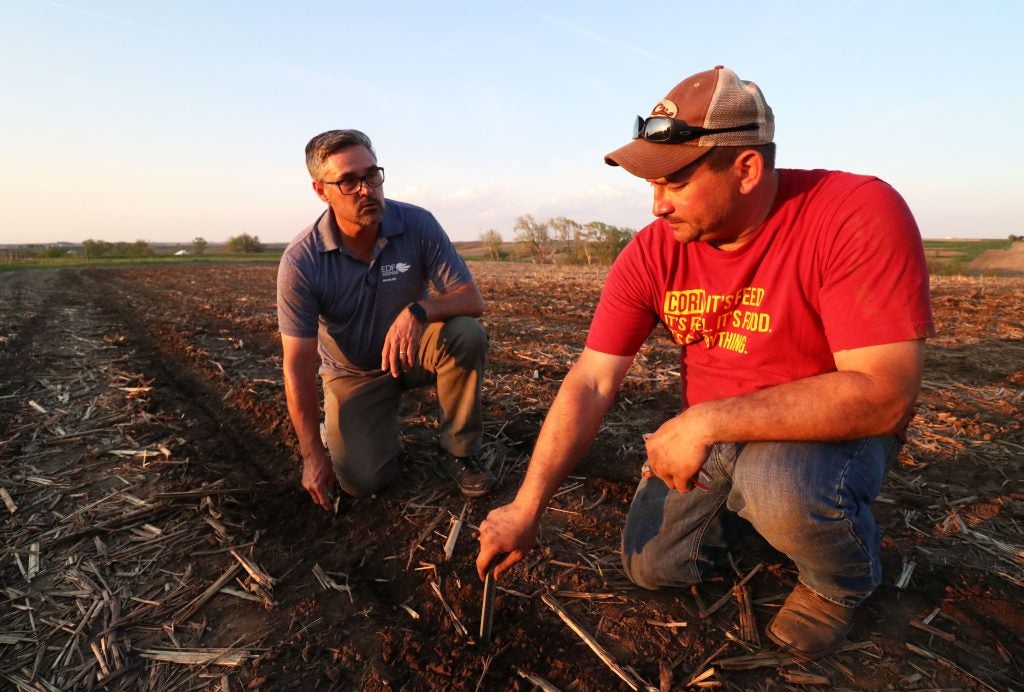Corn farmers endorsed climate policies. Here’s what you need to know.
The National Corn Growers Association (NCGA), which represents the interests of 300,000 U.S. corn farmers, recently approved more than a dozen climate policies as part of the policy positions its members vote on twice a year. In doing so, NCGA affirmed that climate change is real, and farmers are part of the solution.
Farmers are on the frontlines of climate impacts, already experiencing, as NCGA notes, “extreme rainfall events, flooding, shifting seasonal temperature patterns and frequent seasonal droughts.” Climate-smart farming practices can help farms stay economically resilient in the face of these challenges, while also reducing emissions and protecting neighboring and downstream communities from climate risks. Corn growers agree: Farmers are part of the climate solution. Share on X
NCGA’s climate policies recognize that successfully addressing climate change will require centering science, maintaining agricultural profitability and rewarding innovation. Here are three highlights from the policies.
Science leads the way
Climate policy should be based on robust science, which is why NCGA calls for greenhouse gas reduction goals that are science-based and measurable.
Good science will also ensure that policies reward farmers for practices that quantifiably reduce agricultural emissions of carbon dioxide, methane and nitrous oxide, and for practices that decrease production risk and increase climate resilience.
Climate resilience reduces risk
NCGA’s climate policies support expanded research by the U.S. Department of Agriculture to measure the relationship between production risk, climate adaptation and conservation practice adoption.
Conservation practices can pay for individual farmers, but additional research is needed to show the long-term risk reduction benefits that climate-smart practices provide. USDA already has access to the aggregated and anonymized data needed for this research and is well-suited to lead the way.
The findings could be used to strengthen federal crop insurance. As NCGA’s policy goals note, this essential program should be well-funded and prepared to help farmers navigate the financial risk associated with a changing climate.

Reward outcomes instead of practices
Farms vary by geography, soil type, weather conditions, farmer experience and access to technical assistance. All of this variability means that successful agricultural climate policy must define desired, science-based outcomes but give farmers the flexibility to determine how to achieve those outcomes in ways that make sense for their operations.
NCGA calls for voluntary, flexible policies that benefit early adopters and create market opportunities for farmers to contribute to climate solutions. Farmers respond to market signals, and policy can enable markets that support ecosystem and climate benefits.
Above all, NCGA’s policies [PDF] show that an essential group of climate stakeholders — U.S. farmers — are ready to help address the climate risk that already impacts them. As the organization wrote, “Corn farmers support policies that help make their farms agronomically and financially more resilient.”
Farmers recognize that there are no silver bullets for mitigating agricultural greenhouse gas emissions and boosting agricultural climate resilience, but with policies that are flexible and grounded in science and economics, farmers can benefit from being part of the climate solution.










